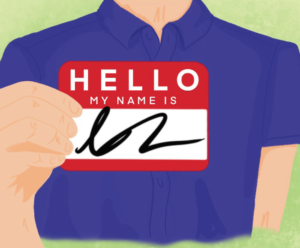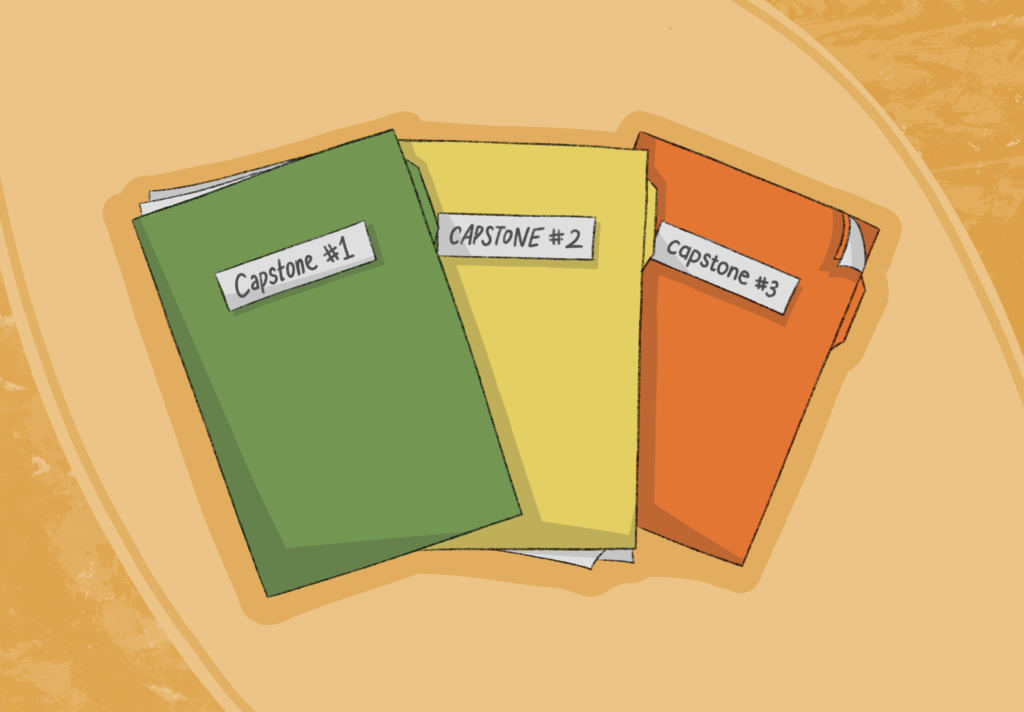
Names are a large part of our identities; they affect how we view the world and how the world views us. Photo by Sesame Gaetsaloe/The Choate News
Names are an integral part of our lives. They influence personal identity and our relationship with a larger cultural framework. Even though many of us have no control over what our names are (at least, until we reach legal adulthood), they affect how we are viewed in the world. Nico Decker ’20, Priam Alataris ’22, and Henrik Torres ’22 spoke to The Choate News about how their names affect their lives and cultural identity.
In a community as diverse as Choate, there are many stories behind people’s forenames. For some people, their given names are a direct connection to their family’s lineage. Alataris noted, “My name is a representation of the largest part of my lineage: Greece. My father was born and raised in a poor region of Athens, coming from a humble family. In Greek, ‘Priam’ is simply a name (spelled Πριαμοσ in Greek).” In Homer’s Iliad, Priam is the name of the legendary King of Troy, the father to famed warriors Hector and Paris.
Some names may also have non-cultural inspiration behind them. Sometimes, parents simply like the name. Torres noted that although his first name is Scandinavian in origin, his family’s connection to Scandinavia did not play a role in choosing his name. “Originally my mom heard the name Henry, and eventually something clicked. When my dad came home, he said ‘That’s a good name, but why don’t we do the Swedish version of it, Henrik?’” Torres said.
Students whose families come from multiple cultures may even have names in more than one language. Decker is half-Chinese and half-Dutch, and she has a Chinese name in addition to her English name. Her English first name, Nicolette, is of French origin, even though she has no relationship with French culture. “My Chinese name is Nini, which is technically a nickname that stuck, and it means little girl,” Decker said.
Part of her Chinese name, Song Nini, is incorporated into her English name, Nicolette Carolyn Song Decker. “Song is my Chinese last name and my mom’s last name. It’s one of the common Chinese last names and also an ancient dynasty, and it is also my second middle name,” she said. “Decker, my last name, is my dad’s. It’s a Dutch surname that means roofer or thatcher.”
For Alataris, his name brings him a sense of great cultural pride. “When I think about my name, I think about my heritage. It fills me with joy and pride that I was chosen to have such a culturally diverse and unique name. When I hear my name, memories flood my head of my grandfather when I was a child and countless times that I have had to explain where ‘Priam’ comes from.”
Decker, on the other hand, feels that her name is not the best reflection of her identity. “I go by Nico because I think Nicolette is a really pretentious name,” she said. “I think I’ve reclaimed some identity, in a way, by creating a nickname for myself.”
Some names do not come without challenges. Names that are unfamiliar within the cultural context of a country may not be pronounced correctly, and the people who bear them may be subject to bullying and harassment. Names may also have professional ramifications as well. According to a study performed by Marianne Bertrand and Sendhil Mullainathan published in the American Economic Review, certain names, in particular so-called African-American-sounding names, may prevent potential candidates from landing jobs, despite similar or even better qualifications than their white-sounding counterparts.
Alataris, who lives in Silicon Valley, said that he doesn’t get judged for his name at home. He has, however, experienced his fair share of strange and stereotypical comments about his first name. “I have heard from people that it sounds like a woman’s name, which is weird,” he said. “Otherwise, I don’t mind if people pronounce or spell my name wrong. I understand that my name is out of the ordinary to some, and putting myself in other people’s shoes, I realize their struggle.”
Torres, by contrast, finds that the biggest challenge regarding his name is other people misspelling it. “Whenever I tell someone my name, it’s very rare for someone to spell it right the first time around. It would seem like Henrik is an easy one, but people often say ‘Hendrick,’” he said.
Alataris encourages the celebration of uncommon names. “If you have a name that stands out, use it,” he said. “Utilize your culture or your history to become the person you want to be, not what others say you should be.




